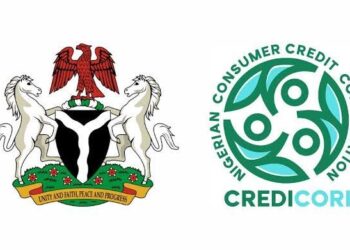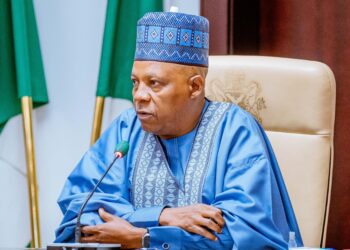Key highlights
- Nigeria’s public and private sector debt reached an all-time high of N70 trillion, representing a 38% YoY increase, with credit to the public sector up 93% and private sector credit up 16%.
- The total money supply (M3) also hit an all-time high of N53.29 trillion, indicating a faster pace of growth in credit to the domestic sector than in the growth rate of the money supply in the country.
- A significant gap between Net Domestic Credit and M3 can lead to imbalances and potential risks to the economy, as well as crowding out private-sector credit and increasing inflationary pressures.
Nigeria’s government and private sector debt rose to an all-time high of N70 trillion representing a 38% increase year on year. This is according to data from the central bank of Nigeria for the month of February 2023.
The data also referred to as total domestic credit is a gauge of how much capital is allocated to debt in an economy. It is an important barometer for also tracking the flow of money across the economy. Total money supply (M3) which is a combination of net foreign and net domestic assets respectively is also at an all-time high of N53.29 trillion.
The total value of money supply in Nigeria has been on the rise since 2022 as government stimulus spending flushed the economy.
Money Supply vs Domestic Credit
However, comparing money supply rises with the level of credit to the domestic sector, credit is about N17 trillion more and growing at a much faster rate. For example, between February last year and February this year, total domestic credit rose by 38% compared to a rise of 19% for money supply.
Distilling further, total credit to the government rose by a whopping 93% to N28.4 trillion as government borrowing increased to shore up fiscal deficits. Private sector borrowing on the other hand rose 16% to N41.7 trillion, much slower than the general pace of growth in money supply in the country.
When Net Domestic Credit is significantly higher than M3, it implies that the banking sector is extending credit to the private sector and the government at a much faster pace than the growth rate of the money supply in the economy.
This situation can arise due to various reasons such as an increase in demand for credit from the private sector, expansionary monetary policy, or a decrease in the public’s willingness to hold money in the form of bank deposits or other liquid assets. A significant increase in Net Domestic Credit can have several implications for the economy.
For instance, it can stimulate economic growth by increasing investment and consumption spending. However, if the credit expansion is excessive and not backed by sufficient productive capacity, it can lead to inflationary pressures and a potential increase in non-performing loans. Additionally, if the credit is extended to unproductive sectors or low-quality borrowers, it can increase the risk of financial instability.
Also note that a significant gap between Net Domestic Credit and M3 can be a cause for concern for policymakers as it may indicate that credit growth is outpacing the growth of the money supply, which could lead to imbalances and potential risks to the economy.
Why is credit to the government rising
If the growth in Net Domestic Credit is faster for the government compared to the private sector, it implies that the government is relying more heavily on credit to finance its expenditures than the private sector is to finance its investment or consumption.
This situation can arise due to various reasons such as fiscal deficits, a lack of revenue sources, or a need to finance public investment. Lending from the central bank to the government has increased in recent years, rising to as high as N22 trillion via the Ways and Means.
Data from the debt management office states that the total domestic public debt was N49.7 trillion as of September 2023. Most of the debt was used to finance the government deficit which was as high as 40% at some point.
Impact of government borrowing
A high level of government borrowing can have several implications for the economy. Firstly, it can increase the country’s overall debt burden, which can lead to higher debt servicing costs, lower public investment, and potential credit rating downgrades.
Secondly, it can crowd out private-sector credit, making it more difficult for businesses and individuals to access financing. This can lead to a decrease in private investment and consumption, which can ultimately slow down economic growth. As stated, public debt is now over N67.5 trillion (including foreign debt). While private sector debt is still higher, an increase in government debt crowds out small businesses from accessing the debt market.
Additionally, a high level of government borrowing can lead to inflationary pressures if the money supply grows too quickly, which can erode the value of the currency and reduce the purchasing power of consumers. Nigeria’s inflation rate rose to 22.9% in February and much of this has been attributed to the increase in money supply. However, faster credit to the government could see most of the money finding its way into unproductive sectors of the economy.
A situation where the growth in Net Domestic Credit to the government is faster than the growth in Net Domestic Credit to the private sector can be a cause for concern for policymakers, as it can lead to a potential imbalance between public and private sector credit, and pose risks to macroeconomic stability and growth.























